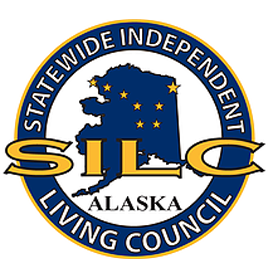Role of the SILC of Alaska
The Workforce Innovations and Opportunity Act was passed by Congress and signed into law by the President in 2014. This law changed many things in the Independent Living community, including how the SILC operates.

The SILC shall:
- Include among its voting members, at least one (1) director of a center for independent living (chosen by the directors of centers for independent living within the state);
- As Ex-officio (non-voting) members, a representative from the Designated State Entity (Alaska Division of Senior and Disability Services) and representatives from State of Alaska agencies that provide services for individuals with disabilities.
The SILC may include:
- Other representatives from Centers for Independent Living;
- Other Individuals with disabilities (the Council must have a majority of people with disabilities on the council);
- Parents and guardians of individuals with disabilities;
- Advocates of and for people with disabilities;
- Representatives from private businesses;
- Representatives from organizations that provide services to people with disabilities; and
- Other appropriate individuals.
Functions of the SILC of Alaska
The SILC shall:
- Develop the State Plan for Independent Living;
- Monitor, review, and evaluate the implementation of the State Plan;
- Meet regularly, and ensure that such meetings of the SILC are open to the public and that sufficient notice of such meetings is provided;
- Submit to the (federal) Independent Living Administration (ILA) periodic reports as reasonably requested, keep records, and afford access to records as the ILA finds necessary to verify the information; and
- As appropriate, coordinate activities with other entities in the State of Alaska that provide similar services to or complimentary to independent living services, such as entities that facilitate the provision of long-term community-based services and supports.
The SILC may, if consistent with the State Plan for Independent Living:
- Work with Centers for Independent Living to coordinate services with public and private entities;
- Conduct resource development activities to support the activities described above or to support the provision of independent living services by centers for independent living; and
- Perform other functions, consistent with the focus of the SILC and comparable to other functions listed, as the SILC determines to be appropriate.




